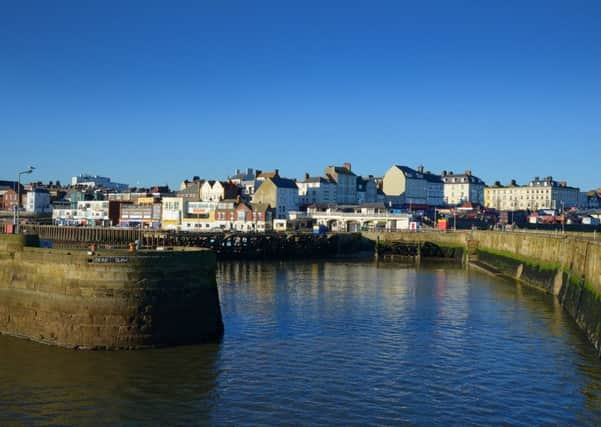Importance of naval power


As English seamen and large crowds on the shore looked on, the Dutch men-of-war closed in on the hapless Spaniards, who were driven to destruction onto the Goodwin Sands. Only seven of their 77 ships escaped. The battle of the Downs was one of the most decisive naval battles in modern history: it annihilated the last major Spanish fleet ever to be seen in the Channel; it marked the arrival of Holland as the greatest maritime power in the world; and it ended Spain’s history as a leading naval power.
The crucial importance of seapower was never more clearly illustrated than by the events and outcome of the British Civil Wars that followed in the 1640s. Losing London to Parliament was a huge blow to King Charles I, but to forfeit the loyalty of his navy was, in the words of the Royalist historian, Clarendon, “a loss of unspeakable ill-consequence to the King’s affairs”.
Advertisement
Hide AdAdvertisement
Hide AdDeprived of the great population, customs revenues and rich resources of London and the south-east of England and the arms and ammunition stored at Hull, Charles was able to raise enough soldiers in the North, Wales and the South-west but not the weapons to arm them. Dutch assistance was essential to a Royalist victory. This explains why the Queen, Henrietta Maria, had gone to The Hague even before the civil war began to win over her son-in-law, Prince William of Orange. Only the Dutch battle fleet could deny Parliament’s naval control of the North Sea and Channel ports. Only the bankers and diamond merchants of Amsterdam could raise the money and offer the credit Charles needed to buy arms and mercenaries. In these circumstances, Parliament’s possession of all the ports from Portsmouth to Hull was a crippling disadvantage to the Royalist cause.
However, Parliament was slow to reap the potential value of their naval authority. Supplies brought in by sea allowed Hull and Plymouth to withstand Royalist siege, but the Queen was allowed to land at Bridlington Quay in February 1643. From Holland she had brought arms for 10,000 soldiers, a thousand foreign mercenaries and £80,000 in ready money raised on the Crown jewels. Five hundred carts were required to carry all this to York via Burton Fleming and Malton.
Bridlington Quay was defenceless and the Queen and her precious cargo were lucky to disembark there unharmed, so that when Sir Hugh Cholmley deserted Parliament the following month and took Scarborough castle and harbour over to the King, the Royalists were relieved and delighted.
Scarborough now became the principal port of entry for continental assistance shipped in from Amsterdam and Dunkirk for the King’s headquarters in the North at York, though the crossing of the North Sea became increasingly hazardous.
Advertisement
Hide AdAdvertisement
Hide AdParliament’s resounding victory at Marston Moor outside York in July 1644 effectively ended the King’s cause in the North and sealed Cholmley’s fate a year later.
The vital value of naval power was again underlined in 1648 when half Parliament’s fleet changed sides and blockaded London. Without a suitable anchorage, however, the mutinous warships had to withdraw to Holland, though their action had encouraged Parliament’s military governor of Scarborough, Matthew Boynton, to follow suit. Only the Royalist failure to supply him by sea shortened his hold on the town, harbour and castle. On the other hand, Prince Rupert, King Charles’ nephew, took command of the seven ships which had deserted Parliament and with them inflicted severe damage for a while in the Irish Sea.
When England became a republic in 1649, it seemed that its life would be brief. It had no friends abroad. Most of the Scots and Irish were its enemies. Christendom was appalled by the public trial and execution of an anointed monarch, particularly his royal relatives in Denmark, Holland and France. Its foreign trade, which provided the government with much of its revenue, was under attack from Royalist bases and privateers. Cromwell’s army had proved itself invincible, but the state’s navy had been neglected, left short of money and weakened by sectarian discords.
Though the army’s generals did not like or trust the navy, they now understood that it was indispensable to their regime. From naval dockyard managers to ships’ captains, the Commonwealth’s navy was purged of all its religious unreliables and replaced with trustworthy radicals, whatever their social origins. Three army colonels were appointed joint Generals-at-Sea and a programme of naval rearmament was activated. By the end of 1651, 20 new warships joined the state’s fleet and 25 more were added by purchase or capture. Only the support of the navy allowed Cromwell’s army to cross the Irish Sea and subdue resistance there and only seaborne supplies gave him the means to defeat the Scots at Dunbar in 1650.
Advertisement
Hide AdAdvertisement
Hide AdBy 1652, thanks chiefly to the courageous leadership of Blake, the senior of the three generals, all former Royalist bases in the British Isles such as the Isle of Man and the Channel islands, had been secured. Now reduced to one ship, Prince Rupert had fled to France. Portugal, Spain, France, Venice, Denmark and Sweden reluctantly recognised the Commonwealth. Even Barbados in the West Indies had been re-taken. Only the Dutch remained to contest Britain’s sovereignty of its home waters.
[to be continued]